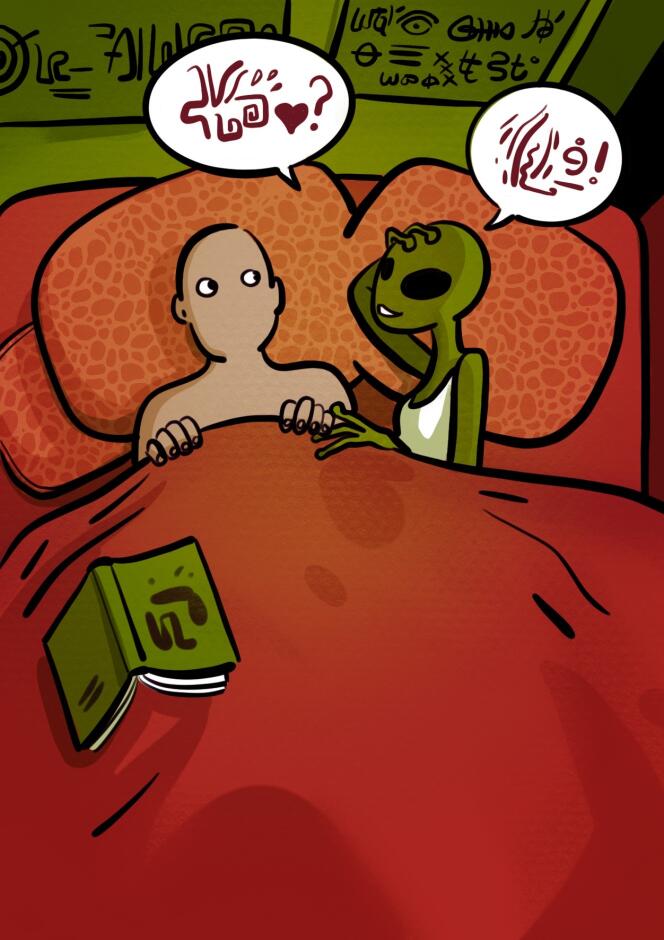

SEX ACCORDING TO MAÏA

Do you know what making "a Pollock" is? To be honest, neither do I. Yet these words appear in the book Les Mots du Q ("Sex Words"), published by the rising French star of sexology: Camille Aumont Carnel – author and creator of the Instagram account @jemenbatsleclito. Is the new generation's vocabulary so different from mine? Do you need to know the definition of a "Pollock" to be in the know?
So let's start by bringing ourselves up to date: "making a Pollock" (in homage to the American painter Jackson Pollock, known for his use of the "dripping" technique, which involves dripping paint onto the canvas) involves staining your bedding by having sex during your period. With that crucial information out of the way, I'll leave you to finish your apple turnover.
Let's turn to the question that's been nagging at me: is our frenzy for new words excessive? In recent months, we've had to get to grips with sologamy, Tinkerbell syndrome, ghosting, chemsex, r-bombing, relational anarchy, lovebombing, breadcrumbing, vulturing, this list goes on. This tedious accumulation could, in the long run, have counter-productive effects, since some of these words – which are forgotten in three weeks – take up the brain space needed to learn useful words, without us always knowing the difference between the necessary and the superfluous.
We also have to question the artificial nature of some of these linguistic inventions: Was it really necessary to inflict dozens of articles on breadcrumbing, when lovers have been leading each other on forever? Apart from triumphing at Scrabble, did we really need to memorize the spelling of odaxelagnia – given that erotic biting already appears in the 1,500-year-old Kamasutra?
The ideal culprit for these fads is the acceleration of media time. Sex doesn't necessarily sell, but it does make people click – if only out of curiosity. Women's and men's magazines, which used to be published on a monthly or weekly basis, have had to pull out all the stops to feed their sex sections every day. The same goes for female influencers on Instagram or TikTok. The result is a proliferation of real polls and unsourced figures – the "according to a study" syndrome – pseudo-advice, testimonials, authentic information lost between two celebrity confessions, along with, of course, new words, that are being produced and distributed at an industrial pace.
The cherry on the cake is the fact that the replenishment of sexual vocabulary comes essentially from English. A new position? Ankles as earrings. A new sexual phenomenon? Squirting (female ejaculation). A sentimental trend? Situationship (the undefined relationship)! From the no bra movement to the importance of choosing a safe word to stop sexual interaction, the king's English has become the Esperanto of love.
You have 55% of this article left to read. The rest is for subscribers only.
